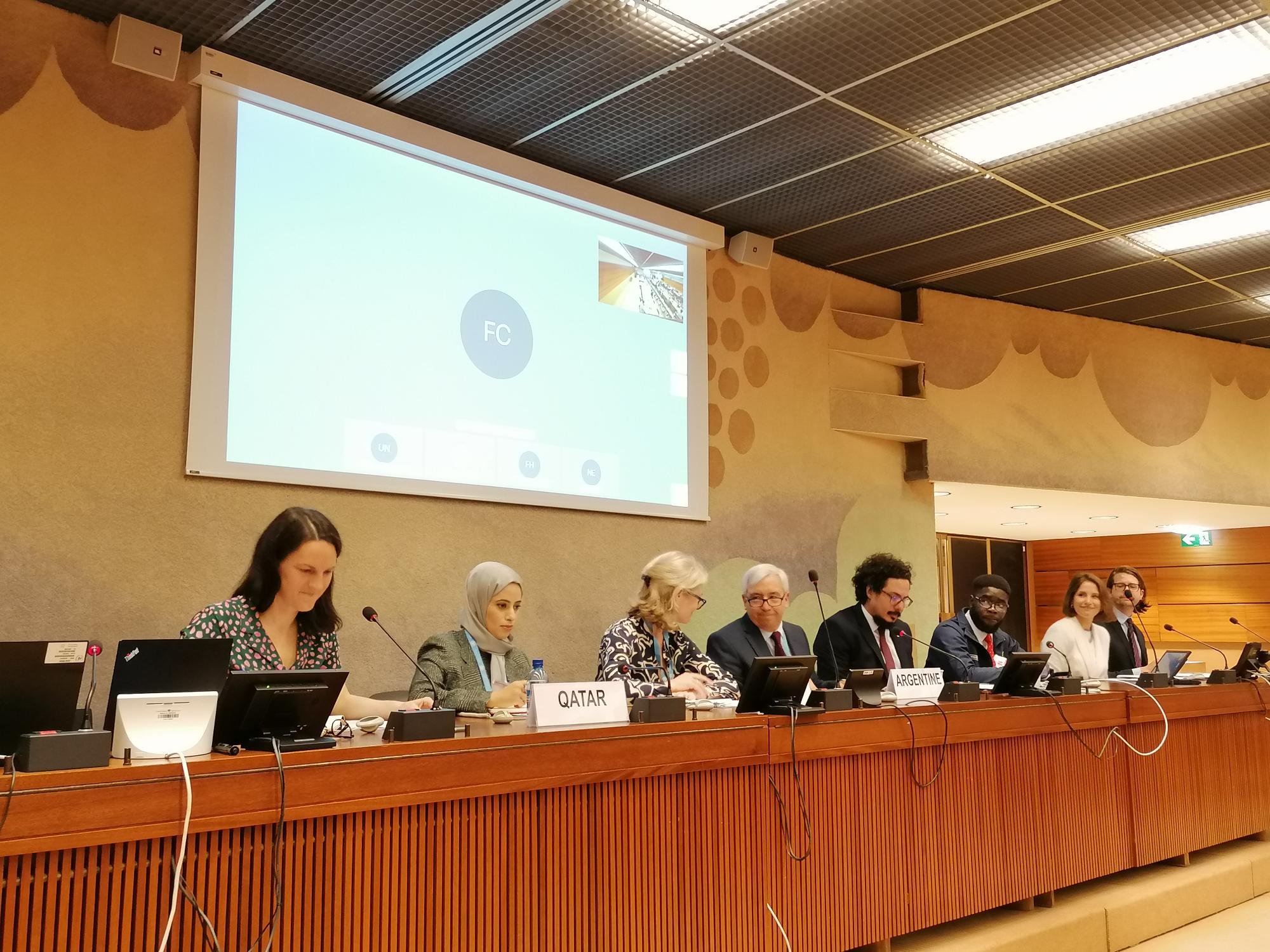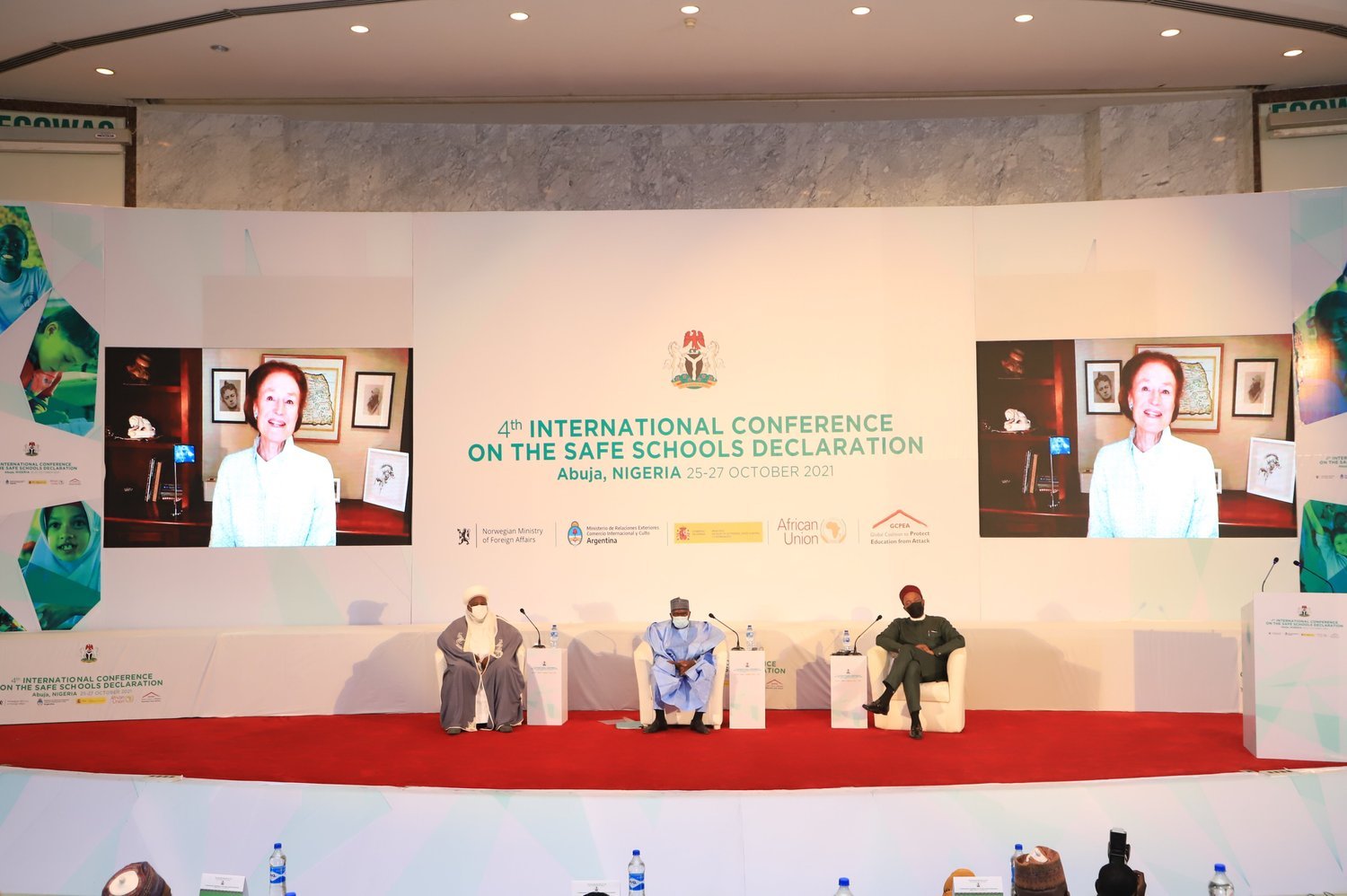Parliamentarians are key to tackling attacks on education
By Oliver Mawhinney - Senior Policy & Advocacy Advisor, IPNEd
The COVID-19 pandemic has failed to slow the global rise in attacks on education and the military use of schools and universities.
Despite prolonged school closures around the world, education was attacked more than 5,000 times in 85 countries over the past two years. This is a significant increase of almost 20% in reported attacks on the previous two years.
The Global Coalition to Protect Education from Attack’s (GCPEA) flagship Education Under Attack 2022 report, which launched today in Geneva, found that these attacks harmed, injured, or killed over 9,000 students, teachers, and academics. One-fifth of all reported attacks during 2020 and 2021 involved explosive weapons.
Education in Ukraine is under unprecedented attack
The conflict in Ukraine has brought global attention to the issue of attacks on education. Over 1,800 schools and universities - 20% of Ukraine's entire education system - have been damaged or destroyed since Russia’s invasion began on February 24.
IPNEd parliamentarians heard directly from Ukraine's Minister for Education and Science, H.E. Mr. Serhiy Shkarlet, on the devastating toll that the war has had on the education and wellbeing of children and young people.
Minister Shkarlet also underlined the urgent need for the international community to ensure the protection of educational institutions and hold the perpetrators of attacks accountable under international law.
Ukraine is not alone
Unfortunately, events in Ukraine are far from isolated. Every day across the world students and educators are killed, raped, and abducted; while schools and universities are occupied, bombed, and destroyed.
GCPEA found on average, six attacks on education or incidents of military use occurred each day in 2020 and 2021. In nine countries, more than 400 attacks on schools or students and educators took place.
These findings must be a clarion call for governments and the international community to accelerate the protection of education from attack.
GCPEA have outlined four recommendations which provide a roadmap for protecting education from attack, where parliamentarians can play a critical role:
1. Implement and endorse the Safe Schools Declaration
Governments should endorse and implement the Safe Schools Declaration, a political commitment to better protect students, teachers, schools, and universities during armed conflict.
In endorsing the Declaration, countries commit to take measures to strengthen the protection of education from attack, restrict the use of education facilities for military purposes, and ensure the continuity of safe education during armed conflict.
Since opening for endorsement in May 2015, 114 countries have endorsed the Declaration.
Encourage your government to endorse the Declaration through setting out the case for endorsement.
To safeguard the right to education, parliamentarians in endorsing countries should ensure the Declaration and Guidelines for Protecting Schools and Universities from Military Use during Armed Conflict are fully implemented.
2. Monitor and report on attacks on education
In many countries where attacks on education take place, information on the number and impact of attacks remains very limited.
By strengthening data collection, monitoring and reporting systems, governments are better equipped to plan, prevent and respond to attacks, as well provide targeted support.
Ask your government to establish monitoring systems that collect and report attacks on education. The data should be disaggregated by type of attack on education, gender, age, location, perpetrator, number of days the school was closed, and type of institution.
GCPEA have produced a toolkit for collecting and analysing data on attacks on education.
3. Hold perpetrators to account and provide assistance to survivors
Perpetrators of attacks on education must be held to account.
States and international justice agencies should investigate attacks on education and prosecute those responsible, with non-discriminatory assistance and protection provided for all survivors of attacks on education.
Ask your government to specifically criminalise as a war crime attacks on buildings dedicated to education during armed conflict, to investigate these attacks, and hold perpetrators accountable.
Ask your government to support international accountability mechanisms for attacks on educational facilities, students, and staff.
Encourage your government to implement United Nations Security Council Resolution 2601 on the protection of schools in armed conflict.
UNSC Resolution 2601 was unanimously adopted in October 2021. The Council condemned the lack of accountability for attacks on education and urged Member States to ensure that violations are investigated and those responsible prosecuted.
4. Plan for and mitigate the impact of attacks
In times of crisis and conflict, education is often the first service suspended and the last to be restored. It is therefore imperative that governments do all that they can to maintain safe access to education.
When that is simply not feasible, governments and donors should invest in distance learning and alternative education programs to ensure all students out of school due to conflict, including refugees and internally displaced children, are able to continue their learning.
Ask your government to make a pledge at Education Cannot Wait’s High-Level Financing Conference in Geneva on 16-17 February 2023.
Education Cannot Wait (ECW) is the only global fund dedicated to education in emergencies and protracted crises. It has transformed the way education is provided to girls and boys caught up in conflicts, climate-related disasters, and forced displacement; yet education remains chronically underfunded in humanitarian responses.
In February 2023, ECW will be hosting a replenishment event to raise urgent funds to help reach the 222 million school-age children whose education had been disrupted by conflict and crises.
Progress is possible
Attacks on schools in Ukraine are one part of a global crisis of increasing attacks on education in violation of international humanitarian law, and occurring with mass impunity.
Yet against this backdrop governments, parliamentarians, UN agencies and non-governmental organisations are coming together to make the promise of safe education a reality.
This is a priority for the International Parliamentary Network for Education too. That is why we are working with parliamentarians to achieve universal endorsement and implementation of the Safe School Declaration, building on our work in the lead up to last year’s Safe Schools Conference in Nigeria.
2022 has been another devastating year for attacks on education. It is incumbent on parliamentarians to come together to help stop attacks on education.
For more information and support please contact:
Oliver Mawhinney – Senior Policy and Advocacy Officer, IPNEd – oliver.mawhinney@ipned.org






